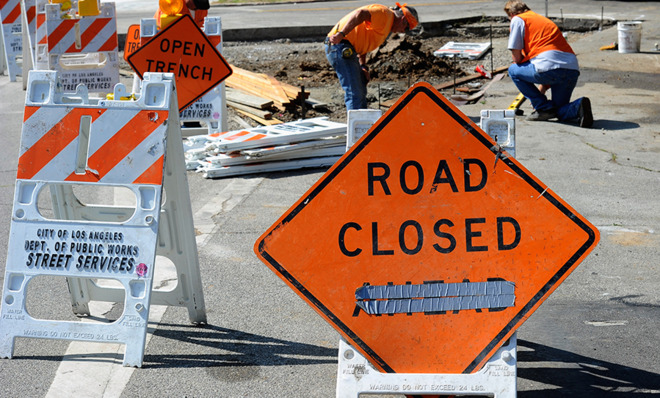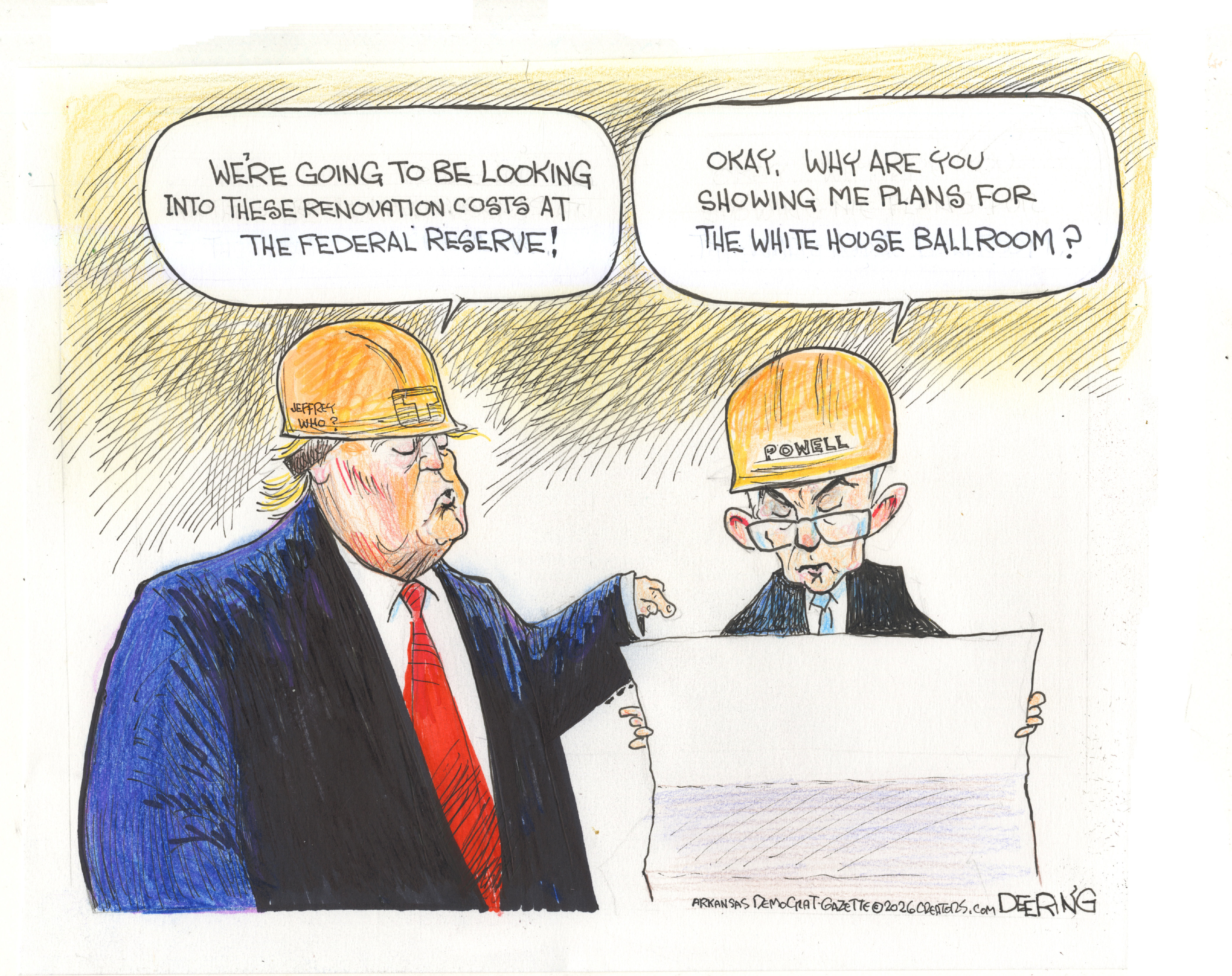It's time to abolish the Interstate Highway System
Republicans and Democrats can both find something to like in this "grand bargain" on infrastructure


The 114th Congress may seem like an unlikely source of major reform. With the Republicans in control of both houses and a second-term Democratic president wielding the veto pen, most observers aren't holding out hope for a grand bargain on, well, anything. But one thing that will need to be addressed is the impending insolvency of the Highway Trust Fund, which Congress only briefly bailed out in July. So I'd like to propose a solution that, in principle, Republicans should love, but also has long-term consequences Democrats should embrace: abolish the Interstate Highway System.
The Interstate Highway System is often praised as one of President Eisenhower's greatest achievements. At the time the largest public works program in American history, its 41,000 miles of highway cost $25 billion to construct in 1956. Today, it's still a massive, centrally-planned network of freeways with a few regional toll roads sprinkled throughout. Ninety percent of its budget is supposed to be covered by the federal government's Highway Trust Fund. And that's where the problem lies.
The Congressional Budget Office estimates the fund's budget shortfall will be about $15 billion every year. You can pretty easily chalk this up to the fact that the fund's coffers are sustained almost exclusively through the federal gas tax. Even as fuel efficiency has improved and Americans have cut back on driving, the tax itself hasn't been increased since 1993.
The Week
Escape your echo chamber. Get the facts behind the news, plus analysis from multiple perspectives.

Sign up for The Week's Free Newsletters
From our morning news briefing to a weekly Good News Newsletter, get the best of The Week delivered directly to your inbox.
From our morning news briefing to a weekly Good News Newsletter, get the best of The Week delivered directly to your inbox.
To solve the issue, Democrats want to raise the tax. Many Republicans want to slowly phase out the federal funding altogether and turn it over to the states. I think Republicans could actually attract Democrats to their position, provided a few crucial policy choices are made.
The most important thing that abolishing the Interstate Highway System will allow is for states to fund their highway infrastructure through tolls, which is strongly discouraged by the federal government. States would even have the option of taking the further step of privatizing their highways, as former Indiana Governor Mitch Daniels did very successfully with one road in 2006.
Eliminating federal funding would also force states to abandon needlessly wasteful projects. One consequence of the DOT's need-based funding is that it encourages states to compete for dollars by wildly overstating how much infrastructure they actually need, even as the actual need continues to decline. Tolling would further reduce infrastructure demand by encouraging carpooling, shorter commutes, and alternative modes of transportation. With the big federal dollars unavailable, states will discover surprisingly quickly how many of their crucial infrastructure projects are not actually so crucial after all.
So why should the Obama administration get on board with this? Because cars, and the infrastructure we've built around them, are a disaster. They kill more than 30,000 Americans a year, and maim many times more. They degrade our air quality and contribute to global warming. They are a huge economic burden to the working poor, and the sheer amount of land devoted to storing them has devastated our urban centers and made housing unaffordable.
A free daily email with the biggest news stories of the day – and the best features from TheWeek.com
By discouraging counterproductive highway projects and making extensive driving and exurban living less palatable through tolls, we can start down a path towards a safer and cleaner future. If we could even get ourselves down to a Western European level of car dependence, we would cut road fatalities to a third of their present value and improve our quality of life in innumerable ways.
This is where Democratic accommodations need to be met.
Democrats should demand, in exchange for cutting a major federal program, two relatively small budget items in return. First, we need to get more trucks off highways, since they do far more damage to the road than cars. Properly calibrated tolls should help to discourage long-haul shipping by truck, but in order for there to be an alternative, we need to beef up our rail infrastructure. The current state of rail freight in the United States is atrocious: it can take more than 30 hours for a train to pass through Chicago. A relatively small amount of investment will go a long way towards shifting more freight from the roads to the rails, thereby vastly decreasing maintenance costs for the roads we have.
Second, we need to provide a path forward for auto-dependent cities and suburbs. While the Obama administration already proposed an ambitious high-speed rail plan in 2009, the exorbitant costs involved leave it unlikely to be realized anytime soon. Instead, we should focus on making better use of existing passenger rail infrastructure, which is far too often surrounded by parking lots instead of residences and workplaces. To this end, we should set up a fund to incentivize transit-oriented development by subsidizing low-parking, high-density projects near regional rail and rapid transit.
Abolishing the Interstate Highway System is a win-win: Republicans get to claim credit for cutting a tax and eliminating a major government program, and President Obama gets to enact some real change.
Evan Jenkins is an algorithmic trader and occasional writer living in Chicago. In a past life, he was a mathematician, but he now mostly thinks about finance and urbanism.
-
 Political cartoons for January 17
Political cartoons for January 17Cartoons Saturday’s political cartoons include hard hats, compliance, and more
-
 Ultimate pasta alla Norma
Ultimate pasta alla NormaThe Week Recommends White miso and eggplant enrich the flavour of this classic pasta dish
-
 Death in Minneapolis: a shooting dividing the US
Death in Minneapolis: a shooting dividing the USIn the Spotlight Federal response to Renee Good’s shooting suggest priority is ‘vilifying Trump’s perceived enemies rather than informing the public’
